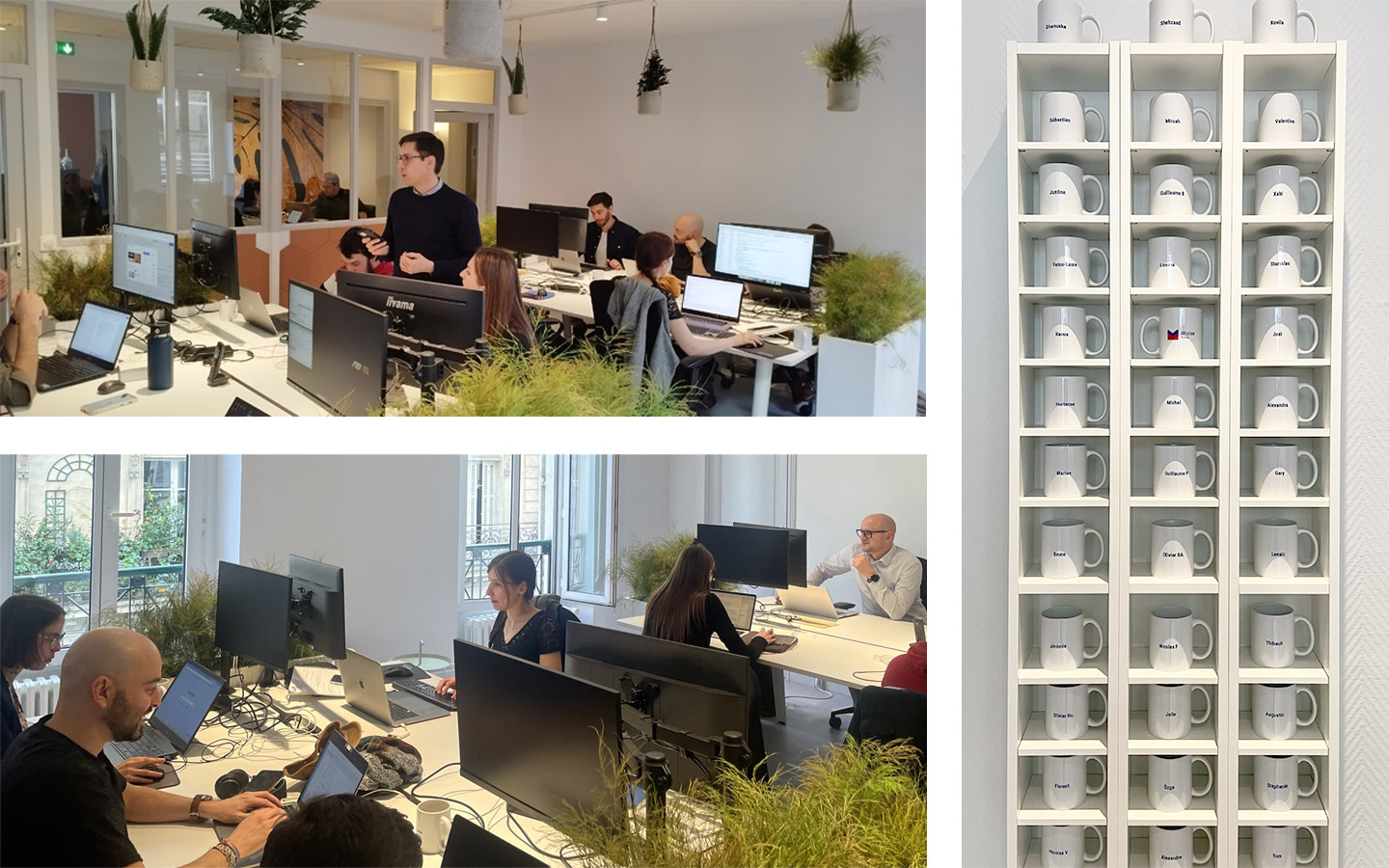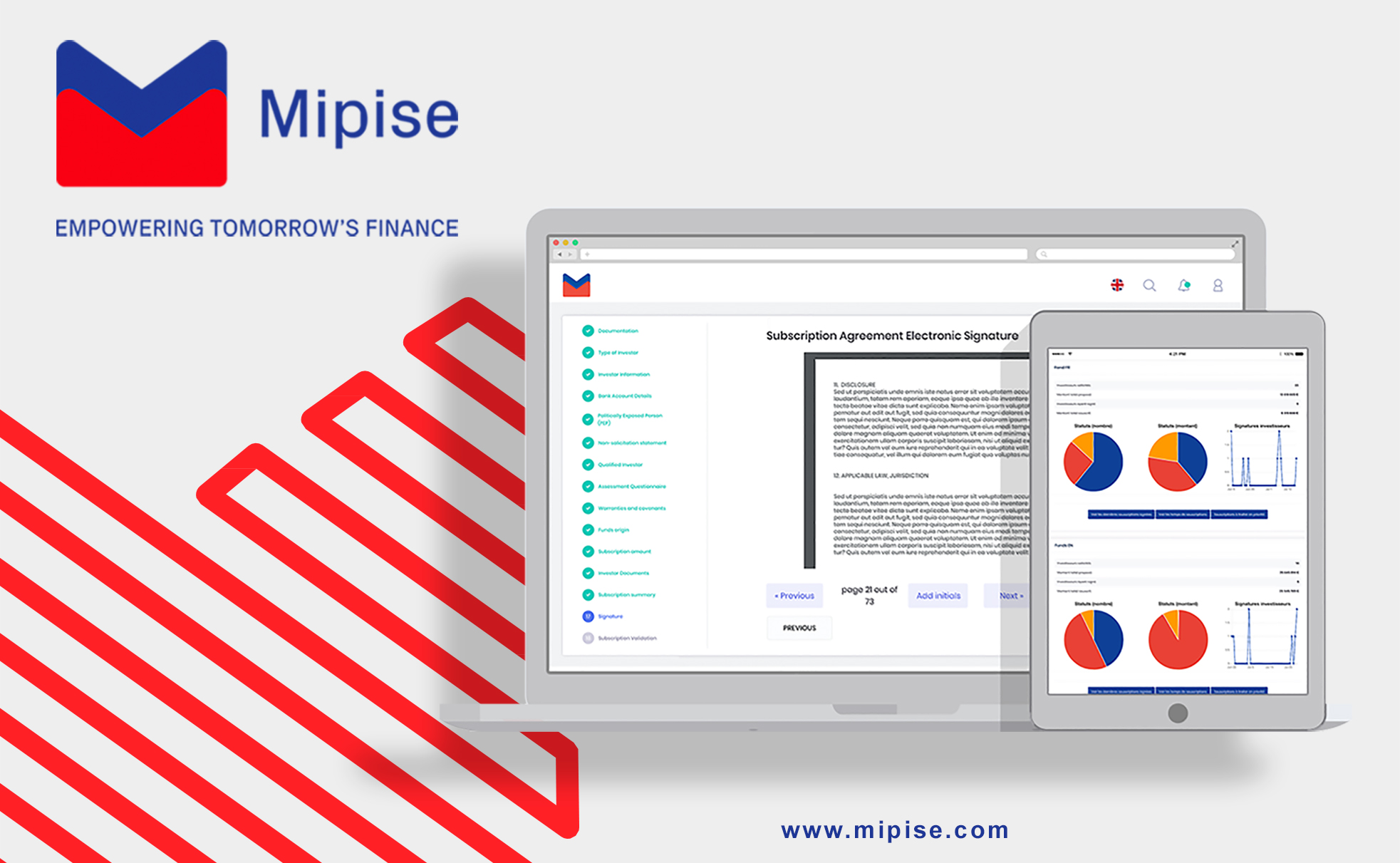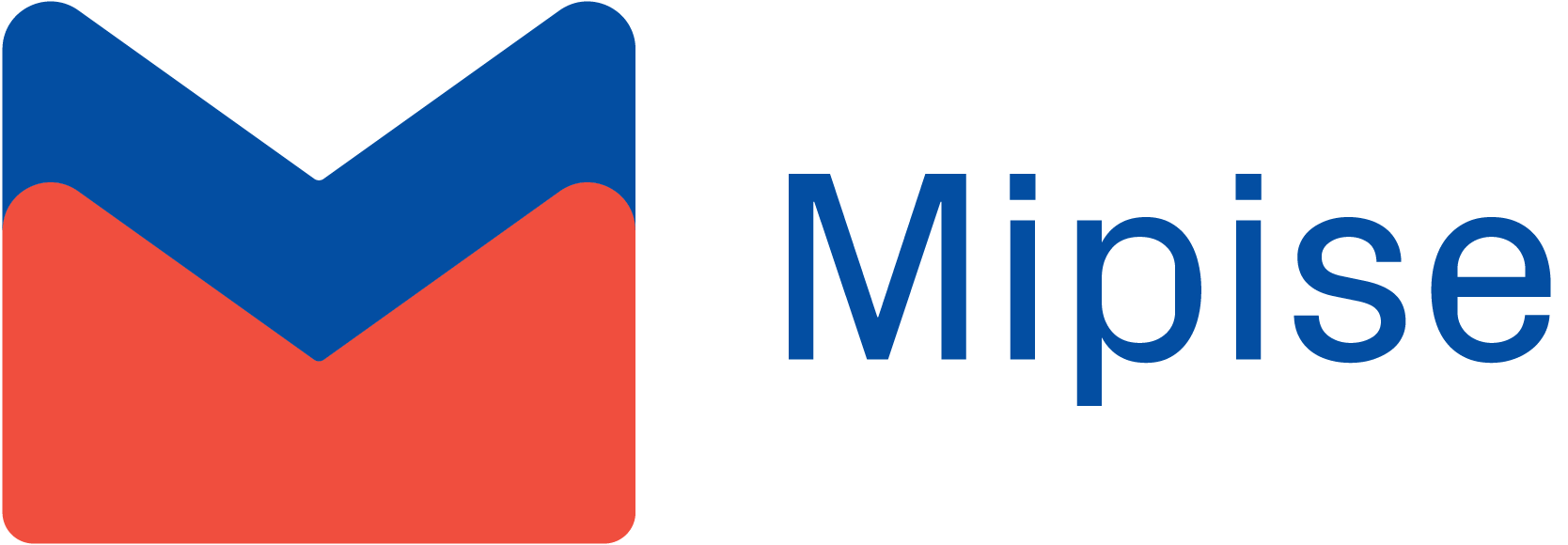Blog

Crowdfunding and crowdsourcing: economic and social impacts
“One for all and all for one”, an old saying that has found new relevance with the rise of participatory funding. In a society where loans are reserved for a creditworthy minority, this new economic model, accessible to anyone, anywhere, at any time, offers an alternative or a complement to the traditional investment system.
With the popularity of crowdfunding platforms, originally launched to support artistic activities, new actors have become interested in alternative funding and the collaborative economy: companies, local authorities, associations, startups, so many profiles searching for aid to promote their projects and reach their objectives. Gift, loan, or equity: giving, lending, and investing have become a social trend where everyone can play their part in building something according to their values.
But, the contribution of the “crowd” is not limited to finance. Crowdsourcing, open innovation - this is a dynamic that is being constructed around the change brought by collective intelligence and it influences multiple sectors.
And what if we brought the “crowd” into our discourse? This article proposes a review of the economic and social dynamics provided by crowdfunding and collaborative platforms.
Crowdfunding: a collective investment model that keeps growing
With over 800 platforms created worldwide in under a decade, crowdfunding has found a position in the economic landscape as an alternative or complement to the traditional investment system, a collective confidence-based tool, for both project leaders and contributors. Individuals, companies, associations, startups and groups - it is a model that benefits everyone and is applicable to any business sector that wishes to get involved in participatory funding.
According to the latest figures of the alternative finance barometer in France, crowdfunding still has the wind in its sails; the amount collected increased by 36 % between the 1st half of 2017 and that of 2018. During the first half of 2018 almost 1,300,000 contributions were made.
Among the success stories of crowdfunding there are many that aim to have a positive impact on society that resonates with contributors who are searching for meaning. Let’s take the example of the film “Demain” (“Tomorrow”), a documentary that surveys the initiatives and solutions of several countries in the face of the environmental and social challenges of the 21st century. To increase their budget and finish the project, the film launched a crowdfunding campaign. The hoped-for target was 200,000 euros, but the campaign raised 444,390 euros, over a quarter of the film’s budget.
Financing solidarity projects and being agents for change
Among contributors, an increasing number are drawn towards crowdfunding dedicated to the social and solidarity economy (SSE) and “crowd impacting”. In France, around fifteen platforms now propose and subsidise projects with a high social or environmental impact or with an international solidarity approach.
The first crowdfunding platform, Babeldoor with a “gift for a gift” format, appeared in 2010. In order to offer a large range of resources to project leaders, the platform then diversified and offered a project co-creation system, combining crowdfunding and crowdsourcing, to collect funds, but also assistance, skills, and all the resources necessary for the development of socially useful projects. This brought meaning to saving, a movement that is increasing in popularity, notably with young savers looking for “useful” investments.
Crowdfunding platforms are a lever that allow the SSE to develop and attain their objectives in an area where traditional finance would have slowed them down. It is also a way of obtaining a guarantee of confidence on the viability of a project and its public interest, a way of raising awareness with decision-makers and investors.
Crowdfunding to implicate citizens in public decisions and develop a territory
Since December 2015, in France, crowdfunding has been open to regional and local authorities. A way of funding that lets them commit, either as partners in campaigns led by citizens, or as collectors for funding projects that benefit the collective interest.
For regional and local authorities, crowdfunding represents the opportunity to give their actions a new dimension. They associate themselves with movements to engage citizens and business to encourage development of the proximity economy and mobilise local savings. Beyond the economic lever, local authorities see in crowdfunding a way of involving local actors - inhabitants, associations, and companies - with public decisions from which they will, directly or indirectly, benefit. By mobilising local citizen, association or entrepreneurial engagement, local communities undertake a positive constructive approach to consolidating social connections.
Regional and local authorities are not the only entities to use crowdfunding to develop a territory. Citizen-entrepreneurs are at the origin of crowdfunding platforms dedicated to projects that create value and employment on a regional scale. For example, Gwenneg, Vendée Up, or Move Corsica.
Another innovative project that will soon be opening its virtual doors is Babelcoop “the cooperative platform for pioneers and builders of a direct utopia”, at the initiative of Hortense Garand, the founder of Babeldoor. Using the platform, groups, professionals and individuals owning wasteland and project leaders looking to develop a collective living space, can pool their ideas and resources. BabelCoop acts as an intermediary introducing project leaders likely to work together to regenerate areas with potential and, consequently, enhance patrimony, territories and collective ways of life.
Supporting entrepreneurship with crowdfunding
In addition to its large-scale social dimension, crowdfunding participates in supporting business and promoting entrepreneurship. It is a market for existing businesses looking to expand or those in the process of being created. It participates in developing an alternative economy by proposing to promote projects with high potential. It intervenes upstream of, or as an alternative to, traditional funding, which is still unwilling to support entrepreneurship without upfront guarantees on project viability.
For companies in the creation phase, crowdfunding acts a confidence lever. Faced with the popularity of a project, validated by individual contributors, banks are more included to agree to a loan. This also means that companies do not need to rely on a single source of funding and can diversify their investors.
As for existing companies in the development phase, it is a way for them to raise funds, raise public awareness and promote their project. The communication phase on a funding platform should to be handled carefully since the whole campaign will rest on the company’s ability to propel their project to this enlarged community. The quality of a crowdfunding campaign depends on the viability of the project and its future notoriety.
Crowdfunding and open innovation as business development tools
As well as seeking funds, proposing a project via a crowdfunding platform is a way of testing a product or service, validating an idea and analysing what works. A good product will keep contributors’ attention and allow the company to carry out market research and form its first customer base.
It is also an opportunity for alternative communication. A “crowd” with greater awareness of a product seems an ideal audience for trying out new marketing plans. Beyond raising funds, the contributors, if solicited, can be a source energy, networks, information and ideas, that they mobilise and pool for the success of the project in a mixed crowdfunding/crowdsourcing strategy.
Another business development tool is the rise of open innovation. Developed at the start of the 2000’s, the concept of open innovation refers to an innovation process based on sharing and collaboration. Open innovation, among other things, brings together actors likely to be able to collaborate and innovate together. Eyeka, for example, acts as meeting place for creators and companies seeking to improve communication and marketing operations.
With new technological and collaborative innovations, businesses are no longer limited to their own R&D department, but are looking for synergy in skills, expertise, and ideas, opening up to a range of external actors (researchers, corporate partners, customers, students, etc.).
The principle of the idea box emerges from these new trends, which are breaking away from “closed innovation”. Companies must continually adapt to changes in their market, meeting customer expectations as closely as possible has become essential.
An online idea box means that collective intelligence can be used, gathering the best ideas, as close to the ground as possible, quickly, and at little cost. More importantly, customers feel listened to and involved, they take ownership of the brand and can become its ambassadors.
Mobilising and involving collaborators with an open innovation platform
Open innovation platforms call on external actors to encourage innovation, but they are also developed within companies as part of an employee involvement strategy. The objectives of this pooling of ideas are many for the company. Among them is an economic objective. By sharing their skills and innovative ideas, by communicating on the solving of problems through feedback, employees play a role in improving the company’s performance and participate in innovation.
The financial aspect is not the only mantra of these trends that capitalise on ideas. The social objective is also highly valued. By involving employees in the company’s R&D, a whole process of listening, recognition of knowledge and highlighting of individual skills is engaged. Employees become an integral part of the company and feel recognised as such.
Internal open innovation platforms are also a place for proposing improvement strategies at all levels: new services, ergonomics of workstations, etc. It is a way for the company to participate in developing its Social and Environmental Responsibility (SER), for employees to be decision-makers regarding their workspace and to improve their Quality of Life at Work (QLW).
Launching a skill sponsorship and volunteering platform to develop SER and QLW
The other great trend encouraging corporate SER at the same time as Quality of Life at Work (QLW), emanates from a growing interest in skill sponsorship and volunteering. Two approaches facilitated by crowdsourcing and the emergence of new intermediation tools in white marketing.
Skill volunteering is the free donation of skills to associations as part of a specific mission. The employee who wishes to offer their expertise in this way must do so outside of a professional context, in other words during his annual leave and/or retirement time. He will not be paid by the company. Skills-based sponsorship is a recognised form of sponsorship. It involves a company allowing its employees to devote a few hours/days of their time to a general interest association.
In practice, sponsorship is a profitable tool for the company’s reputation and confers it with the status being an actor in civil society. This enhances its identity and heightens awareness of topics other than its production activity. Sponsorship also acts on the development and promotion of the company’s CSR, reconnecting with employees and creating a sense of belonging founded on common values. The quest for well-being at work, professional development and recognition are objectives led by new generations, who arrive on the job market looking for meaning. Their expectations are no longer only professional, they are driven by a desire to contribute to the common good.
Developing a skill sponsorship or volunteering policy requires the mobilisation of numerous participants across the whole of the preparation chain, from the performance to the evaluation of the task. A complex organisation that is sometimes held back by the limited resources that are characteristic of corporate foundations.
Faced with this constraint, the emergence of intermediation tools in white label, such as the MIPISE solution, help to smooth processes and offer companies and employees the opportunity to easily participate in sponsorship projects, the new general interest tool.
Thanks to digital technology, all over the world, on various scales, communities are creating and organising themselves to support innovative socially and environmentally useful projects. The transition to digital has awoken individual responsibility with regard to the collective. Crowdfunding platforms allow a whole range of entrepreneurial activities to find support and develop, which has no spontaneous echo in traditional sources of funding. Crowdfunding acts as a lever for involving citizens in public decisions and engaging local authorities in a constructive dynamic. Crowdsourcing and open innovation platforms participate in constructing high quality CSR and encouraging businesses to engage socially and demonstrate solidarity. Through these examples, we can see that the “social good web” continues to feed a positive social dynamic and to work towards a collective transformation of our society.






